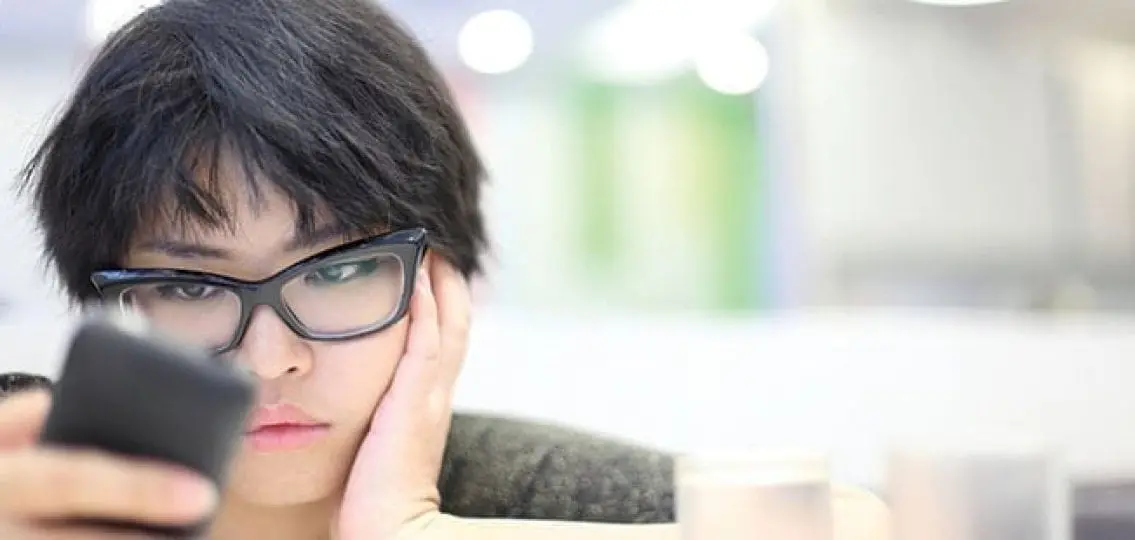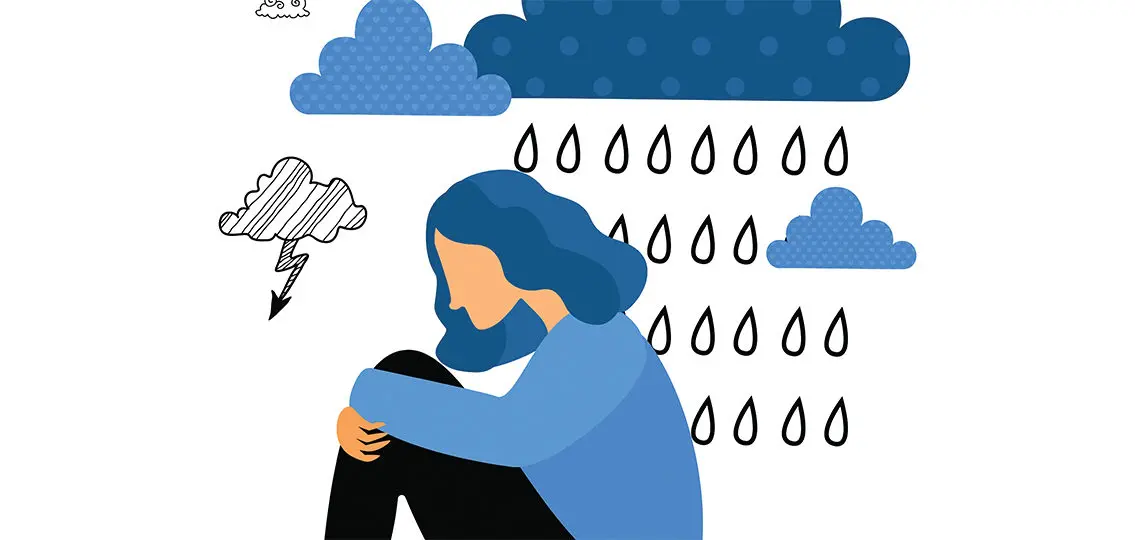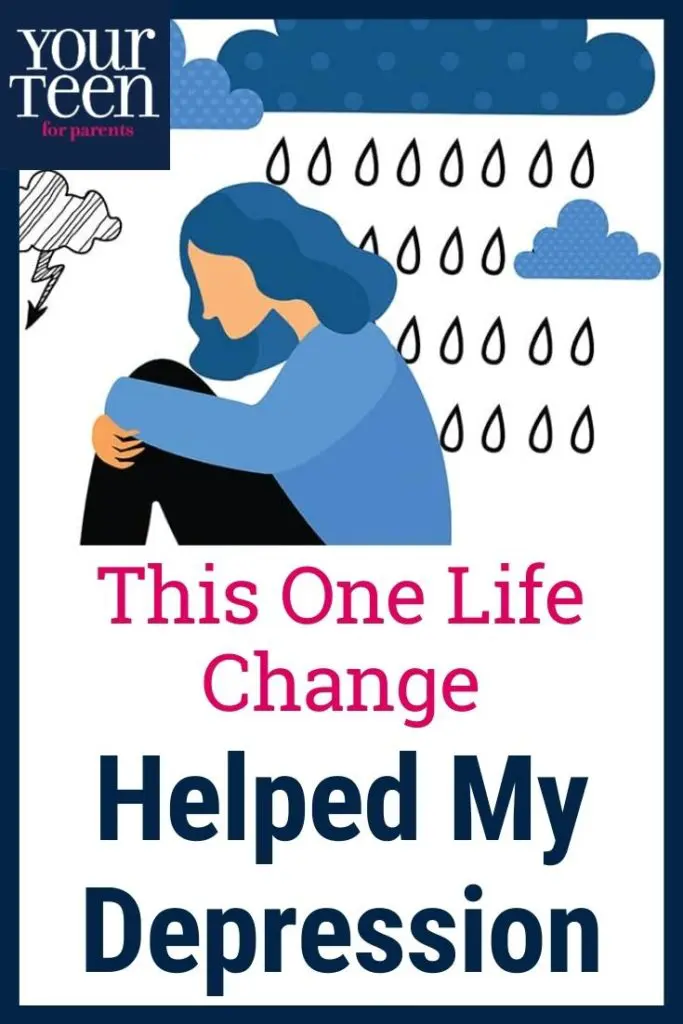Remember when attending school was the norm? Even then, not everyone attended. Read on for a hopeful story of how leaving high school behind enabled one teen to begin recovering from depression.

Parent | Anne Walker-McBay
My mother suffered from depression for most of my life. When I was little, the world seemed safe and okay when she was happy. And when she was depressed, my world fell apart. Now my life seemed fated to be sandwiched between two depressed women: my mother and my 15-year-old daughter, Ruby. How was I ever going to feel okay?
When I gave Ruby a stack of self-help books on depression and told her we could look for a therapist, she nodded and said very little. Before her illness, I had been used to her wailing with emotion, vocally telling me how she felt. Earlier that year she had petitioned to change her racist Confederate high school mascot and had boldly stood up to the older teens. This was only a few months before.
What had happened to her fight—all her energy to change the world?
As lost as I felt, I imagined Ruby must feel even more lost.
Although I was not at all sure what precisely would help her, I did have a pretty good idea what was making things worse. There are so many external pressures in our current public-school system—grades, teaching to tests, rigid schedules, and early start times that mean too little sleep.
Ruby told me that finishing high school felt like a prison sentence, and I resolved that there must be another way. I encouraged Ruby to leave public high school to be homeschooled, not from a sense of desperation but from the hope that if she were given the time and space to heal, she could rediscover who she was and what brought her joy. It was not a quick fix.
Can School Cause Depression?
I could tell that during the first few months she felt lost and adrift. But slowly, glimmers of her natural curiosity returned. One day I came home from work and she excitedly lectured me about cacti. It was not for an assignment or a report; it just occurred to her that she would like to know more about cacti. So we took a fun day trip to a cacti farm and purchased a bunch. We called them our babies, and she would tend to her cacti garden on our deck listening to music.
She started to seem more content and interested in the world.
I will always remember the day I heard her laughing from the other room. How I had missed that loud, booming laugh!
It was not until I read the book she wrote, “Advice I Ignored,” that I got a clear picture of all she had gone through. We have always been very close, but she was literally choked with despair and could not explain what was happening—there was earlier abuse, cutting, and destructive thoughts that I’d had no idea about.
Throughout this challenging journey, it has been a gift to be able to get to know my daughter better. If I were to give advice to other parents, I would say to be as patient as you can, to try not to judge your child based on their actions while depressed, and to hold the hope for them until they can find it for themselves.
Anne Walker-McBay runs a small business with her husband, Sean Thornton, in Austin, Texas. Their business, RedBud HomeCare, manages caregivers who assist the elderly living independently at home. Anne was also an independent film producer for over 20 years. She produced films such as Dazed and Confused, Before Sunrise, Waking Life, and Infamous.
Teen | Ruby Walker
I see the events of my teen years as more interconnected than my mother does. My mom saw me change from an outspoken, overachieving kid to a silent and dysfunctional adolescent. Of course she wondered, “What terrible affliction has befallen my poor daughter?” As a parent, the outward changes your child shows when they’re depressed might make very little sense.
But looking back from my perspective, all psychological elements that came together to make me horribly depressed were there long before the bomb went off and I started showing symptoms. In fact, the thought processes that made me a straight-A student in the first place were the same ones that caused me to drop out.
I remember throwing myself into bouts of panic and self-loathing over missed homework assignments when I was as young as 9. I started crying because I compared myself to the other girls at school when I was 7. It seemed like an intrinsic part of my personality: I was on the hunt to find and obsess over every single one of my flaws, whether they were real or perceived.
I needed the external validation of others thinking I was smart and pretty because deep down, a black hole of self-loathing sucked up all the light.
It turns out school triggers my depression.
When I left public high school, I had to abandon the idea that my environment was making me depressed. The fluorescent lights and pressure to perform certainly weren’t helping. But after I left, I still had to reckon with paralysis and dread every morning. Having some time away from the constant demands of school wasn’t the easy fix I had been hoping for, but it gave me the space I needed to work on my recovery.
Recovery
My first step to recovery? Learning to let go of my obsession with self-hatred and slowly start believing I was a good person who was worthy of respect, even from myself.
Getting there involved a lot of affirmations, faking it till I made it, and confronting illogical thought processes in my journal. My mom learned about a bunch of different cognitive distortions in her own therapy, and she passed that knowledge on to me. With practice, I was able to identify when I was catastrophizing things or blaming stuff on myself that wasn’t my fault. From that initial basis of self-respect, I was able to say, “I’m going to put the hard work into getting better. I deserve to be happy. Even if it’s painful. Even if it seems pointless. I’m not a lost cause.”
I ended up doing a lot of cool stuff after I left high school—I wrote a book, I started community college, and I discovered that I love running and gardening and smiling at strangers. I don’t think I could’ve done any of that if I hadn’t learned to be kind to myself first. Everything else flowed from there.
Ruby Walker is an 18-year-old college student, lesbian, activist, artist, and writer. Ruby lives in Austin, Texas, and is currently studying art and creative writing at Trinity University in San Antonio. Her book, Advice I Ignored: Stories and Wisdom from a Formerly Depressed Teen, is the only book on teenage mental health actually written by a teenager.
Expert | Mark McConville, Ph.D.
Depression in adolescence is common. But Ruby herself? She’s anything but common. As the psychologist Kazimierz Dabrowski pointed out, some kids are born with an oversized capacity for emotional and intellectual sensitivity. Their feelings are bigger, and their intellectual curiosity is not sated by conventional academic curricula. These kids don’t feel “normal” because they’re not the norm. They have to do things their own way but are at a stage of life when they don’t yet know what “their own way” is.
Dabrowski makes two predictions for “oversensitive” kids like Ruby: one, they are more likely to suffer psychiatric symptoms as adolescents. And two, they are more likely over time to develop deeply authentic personalities and value systems. Ruby meets the criteria on both counts. She’s the only adolescent author of a book on adolescent depression, and that’s pretty far beyond “normal.” I’ve read the book, and I highly recommend it to any teen who wrestles with depression.
While Ruby may be an uncommonly sensitive teen, there is also something very common about Ruby’s story.
Particularly how as a middle school girl, she was captured by the pressures of perfectionism and comparative self-assessment. Harvard psychologist Robert Kegan calls this the “stage of the Interpersonal Self,” meaning that middle schoolers tend to define and value themselves vis-à-vis their peers.
The Connection Between School and Depression
When kids shift into adolescence, many develop an inner world of thoughts, feelings, urges, and intuitions, counterposed to the compelling outer world of social relations and school life. This still-developing inner world can be both terrifying and mesmerizing.
This discovery is both wonderful and terrible. Wonderful because it introduces the possibility of a rich and deep self-awareness—a sign of wisdom and maturity at any age. And terrible because it seems to come out of nowhere. It does not arrive with a map or instructions, and opens up—in its adolescent form—a capacity for outsized empathy, unresolvable ambivalence, and intense emotional pain. And here’s the worst part: With this development, as the adolescent becomes more interior and more self-absorbed, she also becomes more vulnerable to experiences of disconnection, alienation, isolation, and loneliness—a virtual recipe for depression.

Luckily for Ruby, she has a mom who was able to see her through this difficult period. Anne’s comments present the essence of best parenting practices with a depressed teen: be attuned; tolerate the confusion and dissonance; stay connected; brainstorm; be open to the fact that you just might have an unconventional kid; don’t give up hope. A depressed kid with a mom like Anne has a way better chance of landing on her feet than one who doesn’t.
Mark McConville, Ph.D., is a clinical psychologist in private practice in Beachwood, Ohio, specializing in adult, adolescent, emerging adult, and family psychology. Dr. McConville is a senior faculty member at the Gestalt Institute of Cleveland and has published and taught widely on the subjects of adolescent and emerging adult development, parenting, and counseling methodology. His latest book is Failure to Launch: Why Your Twentysomething Hasn’t Grown Up… and What to Do About It.





